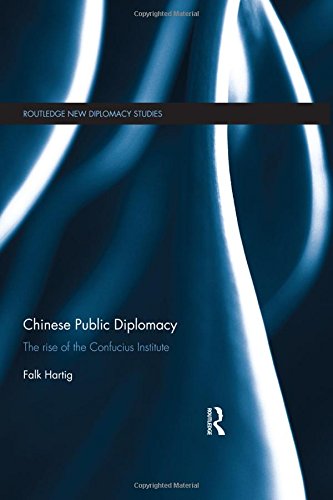

Most ebook files are in PDF format, so you can easily read them using various software such as Foxit Reader or directly on the Google Chrome browser.
Some ebook files are released by publishers in other formats such as .awz, .mobi, .epub, .fb2, etc. You may need to install specific software to read these formats on mobile/PC, such as Calibre.
Please read the tutorial at this link: https://ebookbell.com/faq
We offer FREE conversion to the popular formats you request; however, this may take some time. Therefore, right after payment, please email us, and we will try to provide the service as quickly as possible.
For some exceptional file formats or broken links (if any), please refrain from opening any disputes. Instead, email us first, and we will try to assist within a maximum of 6 hours.
EbookBell Team

4.3
98 reviewsThis book presents the first comprehensive analysis of Confucius Institutes (CIs), situating them as a tool of public diplomacy in the broader context of China’s foreign affairs.
The study establishes the concept of public diplomacy as the theoretical framework for analysing CIs. By applying this frame to in-depth case studies of CIs in Europe and Oceania, it provides in-depth knowledge of the structure and organisation of CIs, their activities and audiences, as well as problems, challenges and potentials. In addition to examining CIs as the most prominent and most controversial tool of China’s charm offensive, this book also explains what the structural configuration of these institutes can tell us about China’s understanding of and approaches towards public diplomacy. The study demonstrates that, in contrast to their international counterparts, CIs are normally organised as joint ventures between international and Chinese partners in the field of education or cultural exchange. From this unique setting a more fundamental observation can be made, namely China’s willingness to engage and cooperate with foreigners in the context of public diplomacy. Overall, the author argues that by utilizing the current global fascination with Chinese language and culture, the Chinese government has found interested and willing international partners to co-finance the CIs and thus partially fund China’s international charm offensive.
This book will be of much interest to students of public diplomacy, Chinese politics, foreign policy and international relations in general.